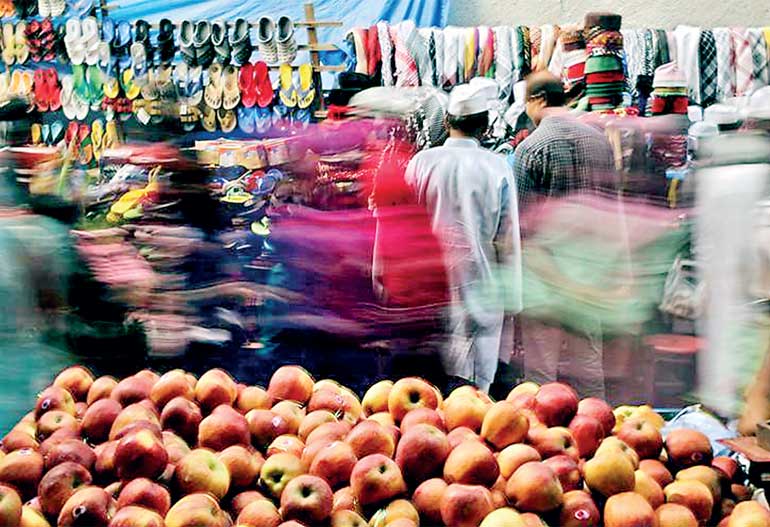Wednesday Feb 25, 2026
Wednesday Feb 25, 2026
Monday, 27 February 2017 00:45 - - {{hitsCtrl.values.hits}}

Reuters: India’s economy is expected to have slowed sharply to a near three-year low in the final three months of 2016, as demand wilted following Prime Minister Narendra Modi’s surprise decision to ban high-value currency notes, a Reuters poll of economists showed.
Modi’s announcement on November 8 ordering the removal of 500-rupee and 1,000-rupee notes took out around 86% of the currency in circulation, putting activity on the skids in a predominantly cash-reliant economy.
The poll of 30 economists taken over the past week showed India’s gross domestic product growth slowed to 6.4% annually in the October-December quarter. Several economists were uncertain about the full impact of the currency ban.
In July-September, India’s economic growth had accelerated to 7.3% from a year ago, making it the fastest-growing major economy in the world.
That title will be lost to China if the Reuters consensus is met, putting the country’s growth at its lowest since March 2014, with China’s economy having grown 6.8% during the same period.
“GDP is going to underestimate the actual impact of demonetisation, simply because the major impact will be on the informal sector which does not get captured in the quarterly estimates,” said Nikhil Gupta, economist at Motilal Oswal.
The government’s currency ban, aimed at fighting tax evasion, corruption and forgery, has caused huge disruption to daily life, leaving farmers, traders and companies relying on cash transactions in disarray.
Services activity plunged into contraction following the currency ban, and still hasn’t recovered fully, while factory activity also declined in December before returning to modest growth in January.
Although there is no clear evidence yet of the impact of demonetisation, economists were undecided on how long its effects will drag on India’s GDP growth.
A slight majority, 13 of 34 economists, expect the current quarter growth to be dented because of the cash crunch; 12 expect the impact to prolong for at least the first half of this year.
Seven economists said it will last until September, the remaining two said it will last beyond that – at least one more year before the economy can fully brush off the impact.
Around two-thirds of the respondents, however, agreed the bigger challenge to GDP growth in the Indian economy is lacklustre capital spending in the private sector, with five citing lower credit takeoff in the banking sector.
Earlier this month, the Reserve Bank of India kept its policy rate on hold at 6.25% and unexpectedly signalled an end to its longest easing cycle since the global financial crisis, citing inflation as a bigger threat to the economy.
It is expected to keep interest rates on hold until at least the second half of next year.